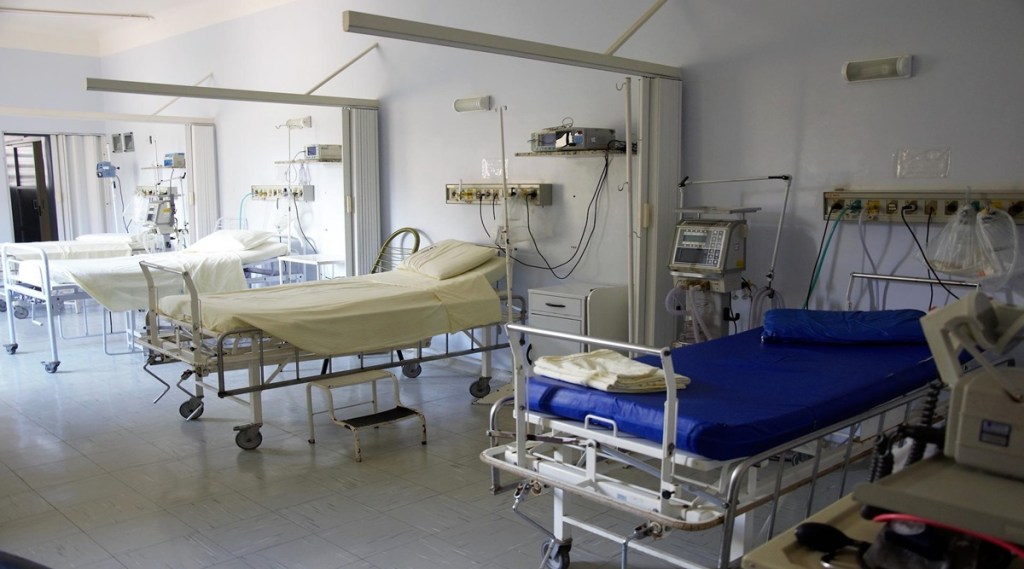Budget 2024: Industry leaders from the hospital sector are waiting in anticipation for the Union Budget 2024-25 as expectations are high for a significant boost in funding.
Dr. Saurabh Lall, Facility Director, and Vice President at Marengo Asia Hospital Gurugram told Financial Express.com that as healthcare professionals and hospital operators in the country, they are delighted that the total healthcare expenditure in the new budget has increased from Rs.79,221 crores in 2023-24 to Rs.90,171 crores in 2024-25.
“As a doctor and a hospital administrator, I think certain areas that need focus and are high expectations of the healthcare sector from the budget are the vaccination protocols and vaccination facilities, especially in the areas of cervical cancer and child immunisation. Mother and child health is a priority for the country, we should have more and more facilities and incentives for mothers to deliver in hospitals and child mortality should be controlled. By virtue of facilities of neonatal ICUs available in the country,” Dr. Lall told Financial Express.com.
A lot of focus is expected from the budget on infrastructure development in Tier 2 and Tier 3 cities specifically, he said.
“I believe that we should have government supporting private healthcare players who are existing in the healthcare space to open new facilities be in partnership with the government or standalone facilities and maximise the penetration of healthcare into the healthcare system and in Tier 2 and Tier 3 towns,” he said.
Also, there is a huge need for simplifying healthcare processes, especially the insurance processes, the TPA processes, and the adoption of simple logical and legitimate insurance reimbursements in our hospitals, he emphasised.
“One thing that can take healthcare in this country to the next level is digitisation of electronic medical records, e- prescriptions and overall data collection and analysis for research, this will give us a lot of insights into the requirements and the opportunities to go down and solve healthcare problems of the country,” Dr. Lall told Financial Express.com.
Also, the area which should be in priority is medical value travel as we are a country which has the best medical minds in the world and the best-in-class facilities, we should promote medical value travel to the next level by creating situations that are favorable to the international patients to come to the country and explore our medical expertise, he pointed out.
He also emphasised on Public Private Partnerships (PPPs) and its importance in ensuring last mile penetration.
“…it will also ensure the exceptionally complex healthcare procedures and surgery that we do in our hospitals is available to every citizen at large and beyond,” he added.
Meanwhile, Sriram Iyer, Chief Executive Officer, Apollo Health and Lifestyle Limited said that they are hopeful the government will continue to prioritise the healthcare sector.
“The February 2024 budget demonstrated a commendable commitment to improving healthcare infrastructure and services, and we anticipate that this focus will be sustained and enhanced in the upcoming budget. We look forward to a potential increase in funding that could further support critical programs and services in mother and child care. Enhancements in prenatal and postnatal care, neonatal intensive care units, and pediatric emergency services are crucial for addressing the growing needs of our community,” Iyer told Financial Express.com.
We trust that the upcoming budget will continue to support the development of a robust and resilient healthcare system, ensuring the highest standard of care for all, he said.
Gautam Khanna, CEO, P.D. Hinduja Hospital & Medical Research Centre, Mumbai highlighted that the upcoming budget should reflect these needs and focus on further strengthening India’s healthcare resources, infrastructure and technological prowess.
“To achieve this and enhance the quality and access of healthcare services in India, we request the Finance Minister to allocate healthcare budget to the tune of 2.5-3.5% of GDP. India’s elderly population is expected to reach a staggering 347 million by 2050. This demographic shift is a societal transformation of unparalleled magnitude with far-reaching implications particularly an increased pressure on the existing healthcare systems,” Khanna told Financial Express.com.
The government’s consideration of comprehensive policy measures for senior care, encompassing health, financial, social, and digital support, is commendable and timely, he said.
“We strongly support the proposal to provide health benefits to all individuals over 60 years of age, with a contributory scheme of coverage up to Rs 5 lakh annually. The potential expansion of the Ayushman Bharat PM Jan Arogya Yojana to cover all senior citizens, including non-medical and in-home care needs, represents a holistic approach to elderly care that we hope to see implemented. We would also like the government to bring in a PMJAY equivalent scheme for the middle class too,” Khanna said.
He also pointed out that the private sector is expanding rapidly, to bridge the accessibility gap. “This should be encouraged with depreciation allowances for investments in diagnostic infrastructure, incentives for infrastructure development, and improving ease of doing business for the private sector in all cities. Introducing either Zero rating GST to the healthcare sector with Input Tax credit or bringing the healthcare sector under 5% GST with Input Tax credit, will help. The private sector should be viewed as a partner by the government to bring healthcare benefits to the masses,” he said.
Khanna also said that the previous budget’s substantial commitment to Research and Development with a Rs 1 lakh crore corpus and a 50-year interest-free loan for sunrise sectors, can be instrumental in encouraging private players to scale up healthcare research and innovation, especially in the start-up domain, he said.
“Digital healthcare with Artificial intelligence and Machine Learning is already playing an important part to bridge the accessibility and affordability gap. Such innovative healthcare delivery models, with potential to scale, can be encouraged with tax incentives on technology, developing an ecosystem to support such initiatives and public-private partnerships. This budget presents an opportunity to build on the progress made and further solidify India’s position as a leader in healthcare delivery, innovation, accessibility, and medical technology,” he added.
The Union Budget 2024-25 is expected to be tabled later this month.







